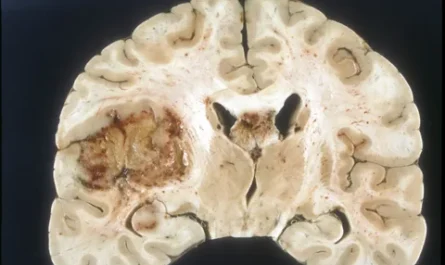Researchers have developed a new rapid test that could potentially save lives by diagnosing patients with the neglected tropical disease, melioidosis, in just hours instead of several days taken by current bacterial culture methods. This breakthrough test could enable patients to receive the necessary antibiotics faster, ultimately improving survival rates.
Melioidosis is a severe disease caused by the bacterium Burkholderia pseudomallei, which is estimated to affect 165,000 people globally each year, resulting in 89,000 deaths. The bacterium is commonly found in soil and water in tropical and subtropical regions and enters the human body through various means.
The current diagnostic method for melioidosis involves culturing bacterial samples, a process that can take three to four days. In countries like Thailand, where the disease is prevalent, this delay in diagnosis often leads to fatalities, as patients may succumb to the illness before receiving proper treatment.
The new test, named CRISPR-BP34, utilizes CRISPR technology to detect a specific genetic target unique to Burkholderia pseudomallei with 93 percent sensitivity. The test was developed through collaboration between researchers at the Mahidol-Oxford Tropical Medicine Research Unit, Chiang Mai University, Vidyasirimedhi Institute of Science and Technology in Thailand, and the Wellcome Sanger Institute in the UK.
In a study published in Lancet Microbe, the researchers demonstrated that the CRISPR-BP34 test outperformed traditional bacterial culture methods, delivering results in less than four hours for urine, pus, and sputum samples, and within one day for blood samples. This significant reduction in diagnostic time could lead to quicker administration of appropriate treatment and ultimately save more lives.
The research team analyzed over 3,000 genomes of Burkholderia pseudomallei to identify a genetic target specific to the bacterium. By conducting clinical trials with samples from patients with and without melioidosis, the team confirmed the test’s effectiveness in diagnosing the disease accurately and swiftly.
Moving forward, the researchers plan to conduct randomized clinical trials to further validate the test’s efficacy in hospital settings and explore the role of human genetics in susceptibility to melioidosis. The development of this rapid diagnostic tool marks a significant milestone in combating the high mortality rate associated with melioidosis.
The collaborative effort behind the creation of the CRISPR-BP34 test highlights the power of international cooperation and genomic research in driving clinical interventions. As the test shows promising results in clinical settings, it has the potential to revolutionize the diagnosis and treatment of melioidosis globally.
Note:
1. Source: Coherent Market Insights, Public sources, Desk research.
2. We have leveraged AI tools to mine information and compile it.




